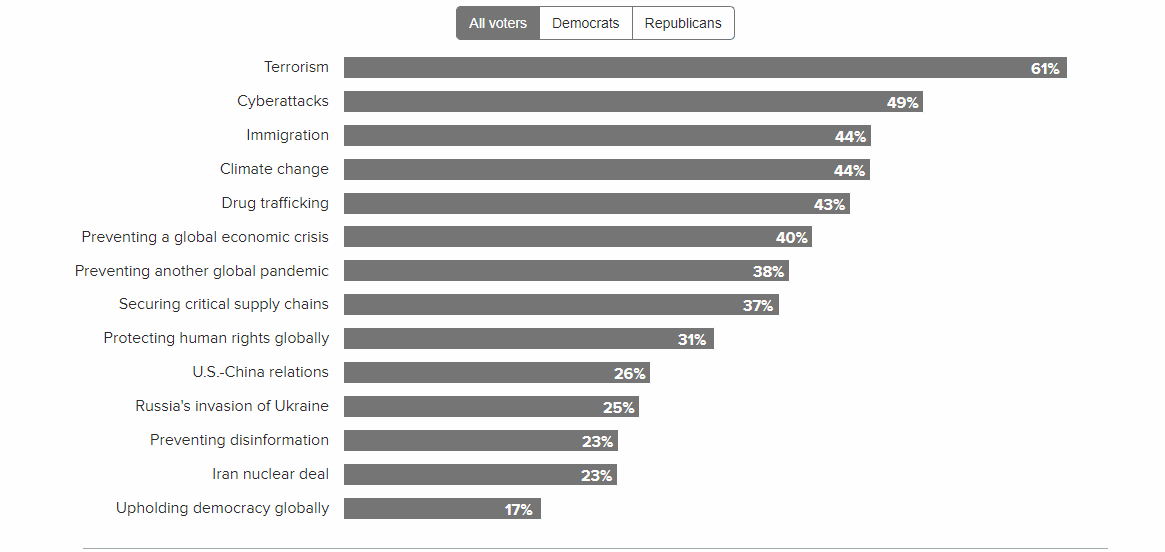Two new polls from Morning Consult and Concerned Veterans for America show at least a plurality of Americans are tired of interventionism. The results show twice as many Americans want to send less aid to Ukraine than those who would support sending more. Meanwhile, only 17% of Americans are concerned about defending democracy around the globe.
The Joe Biden White House built its foreign policy around the idea it would move away from fighting wars against terrorists in the Middle East, and refocus the Department of Defense on “Great Power Competition.” The administration marketed the policy as “autocracy versus democracy” with the White House leading the Western countries against Russia, China, Iran, North Korea and other ostensibly bad countries.
The White House has faced some criticism for claiming to promote democracy and selling weapons to brutal tyrants in Egypt, Saudi Arabia, UAE and apartheid Israel. Though Morning Consult’s polling released last week shows the White House’s idea of promoting democracy is not resonating with the American people.
The poll asked Americans about their views on the country’s most pressing foreign policy challenges. Only 17% of respondents told the pollsters that “upholding global democracy” was a top five concern, ranking 11th behind drugs, climate, immigration, terrorism and the economic crisis.
The poll was backed by another by Concerned Veterans for America that found US citizens do not want increased involvement in Ukraine. “Only 15% of the American public support sending more military and financial aid to Ukraine than wealthy European countries, with almost twice as many people (34%) wanting to send less assistance,” CVA wrote. Additionally, a majority of Americans only want the assistance to continue if Europeans match the American commitment.
The poll shows Americans are firmly opposed to military intervention in Ukraine. Over 55% of respondents oppose direct American military intervention while only 14% percent support fighting a war for Kiev. The results for Ukraine were similar to Americans wanting a scaled-back role in the world, with 42% of respondents saying they want a smaller role and only 7% supported more intervention.
































